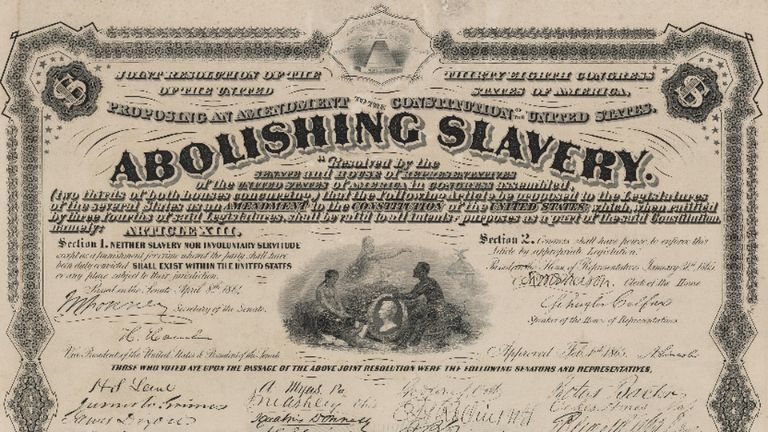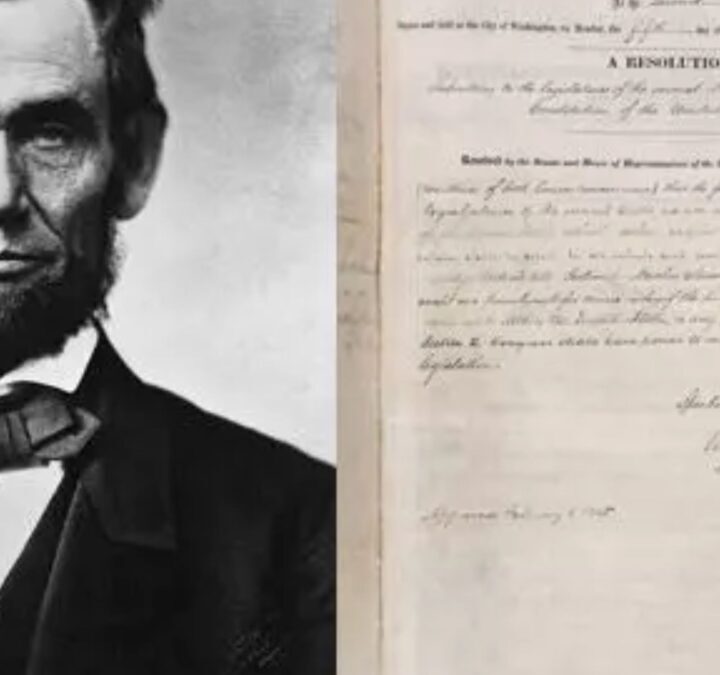Turning the tide on centuries of injustice, the Thirteenth Amendment stands as a monumental milestone in American history. Enacted in 1865, this pivotal piece of legislation brought an end to the abhorrent practice of slavery in the United States. Its impact reverberated across the nation, forever reshaping the social, political, and economic landscape of the country. Let us probe into the significance of this amendment and the profound changes it ushered in for the future of America.

The Adoption of the Thirteenth Amendment
Legislative Journey
A pivotal moment in American history was the legislative journey of the Thirteenth Amendment. This amendment, proposed in 1864 and passed by the Senate on April 8, 1864, sought to abolish slavery and involuntary servitude in the United States. It was a significant step towards the end of one of the most abhorrent practices in the nation’s history.
Ratification Process
For the Thirteenth Amendment to become law, it required ratification by the states. The ratification process was a crucial step in ensuring the abolition of slavery was recognized nationwide. By December 6, 1865, the required three-fourths of states had ratified the amendment, solidifying its place in the U.S. Constitution.
For instance, during the ratification process, states like Georgia initially rejected the amendment but later ratified it after being readmitted to the Union. This back-and-forth reflected the tumultuous nature of the times but ultimately demonstrated the overwhelming support for the abolition of slavery.
Impact on American Society
Immediate Effects on Emancipation
Little did the people of America know that the Thirteenth Amendment would bring about immediate changes in the lives of millions of enslaved individuals. An overwhelming sense of relief and hope spread through the African American community as they began to see a glimmer of freedom on the horizon.
Long-Term Social and Political Changes
Changes brought about by the Thirteenth Amendment were not confined to immediate emancipation alone. The amendment paved the way for significant long-term social and political transformations in American society. For instance, the abolition of slavery disrupted the existing social hierarchy, leading to a reconfiguration of power dynamics and a gradual shift towards a more inclusive and equal society.
Challenges and Limitations
Loop Holes and Continued Discrimination
For many African Americans, the Thirteenth Amendment was a beacon of hope, signaling the end of slavery. However, the presence of loopholes in the amendment allowed for continued forms of discrimination and exploitation. The infamous convict leasing system, where black individuals were arrested on minor charges and then leased out to private companies for labor, effectively re-enslaved thousands after the Civil War.
Evolution of Civil Rights Movement
Evolution of Civil Rights Movement
An important consequence of the Thirteenth Amendment was the catalyzation of the civil rights movement. Over the years, this movement has evolved from fighting against Jim Crow laws and segregation to advocating for equal rights in all aspects of society, including voting rights, education, and employment. The Thirteenth Amendment laid the foundation for future activism and legal battles in the pursuit of true equality for all.
Continued advancements in civil rights legislation, such as the Civil Rights Act of 1964 and the Voting Rights Act of 1965, further solidified the progress made since the Thirteenth Amendment. However, challenges still persist, with issues like systemic racism, police brutality, and voter suppression continuing to plague the fight for true equality in America.
The Thirteenth Amendment in Modern Times
Legal and Cultural Significance Today
Legal and cultural significance of the Thirteenth Amendment in modern times cannot be overstated. The Amendment’s abolishment of slavery laid the foundation for civil rights movements and set the stage for a more inclusive society. Its impact can be seen in landmark Supreme Court decisions, legislative actions, and ongoing efforts to combat systemic racism.
Educational Implications and Public Awareness
To ensure the Thirteenth Amendment’s legacy is understood and appreciated, educational institutions play a vital role. Public awareness about the Amendment’s importance in shaping American history is crucial for promoting social justice and equality. Incorporating its study into school curriculums and community discussions fosters a deeper understanding of the struggles and triumphs in the fight against slavery.
Moreover, initiatives to raise public awareness about the Thirteenth Amendment can include museum exhibitions, seminars, and online resources. By disseminating information about the Amendment’s significance, society can engage in meaningful conversations about the past, present, and future of civil rights in America.
Conclusion
With this in mind, the Thirteenth Amendment marked a pivotal moment in American history by abolishing slavery and setting a new course for the nation’s future. This significant legislation laid the foundation for progress towards equality and justice for all citizens. The Amendment’s impact cannot be understated, as it brought about a fundamental shift in societal norms and paved the way for further civil rights advancements. The Thirteenth Amendment serves as a reminder of the struggles and triumphs in the fight for freedom and equality, making it a turning point in shaping the United States into the nation it is today.
FAQ
Q: What is the Thirteenth Amendment?
A: The Thirteenth Amendment is an amendment to the United States Constitution that abolished slavery and involuntary servitude, except as punishment for a crime.
Q: When was the Thirteenth Amendment ratified?
A: The Thirteenth Amendment was ratified on December 6, 1865, following the end of the American Civil War.
Q: How did the Thirteenth Amendment impact American history?
A: The Thirteenth Amendment marked a turning point in American history by officially ending slavery and laying the foundation for the civil rights movement.
Q: Was the Thirteenth Amendment met with immediate acceptance?
A: While the Thirteenth Amendment legally abolished slavery, it did not immediately end discrimination and segregation in America, leading to ongoing struggles for civil rights.
Q: What legacy does the Thirteenth Amendment leave for future generations?
A: The Thirteenth Amendment’s legacy serves as a reminder of the importance of equality and freedom, inspiring continued efforts to uphold and protect civil rights for all individuals.
See also our article: Marronage and the Maroons










